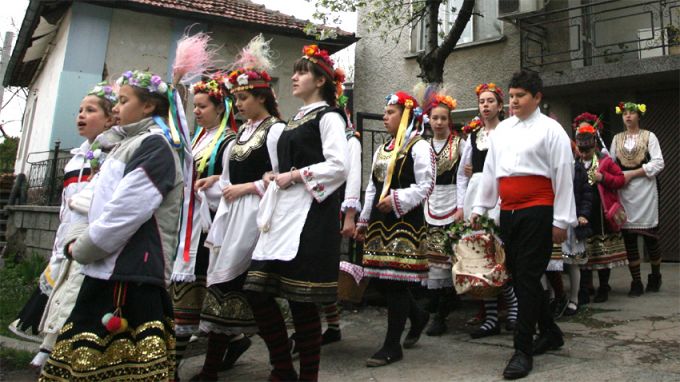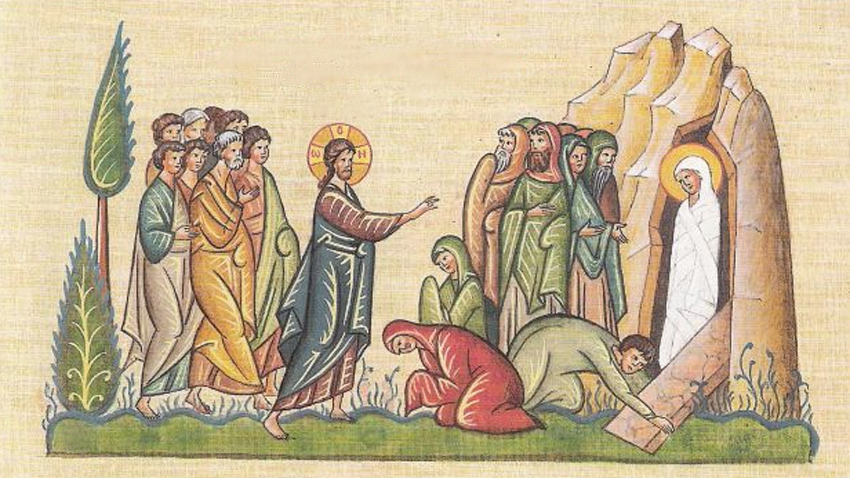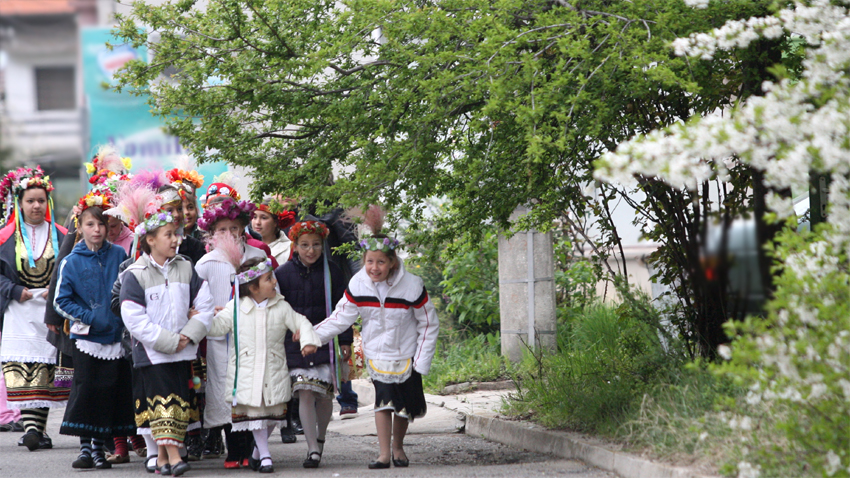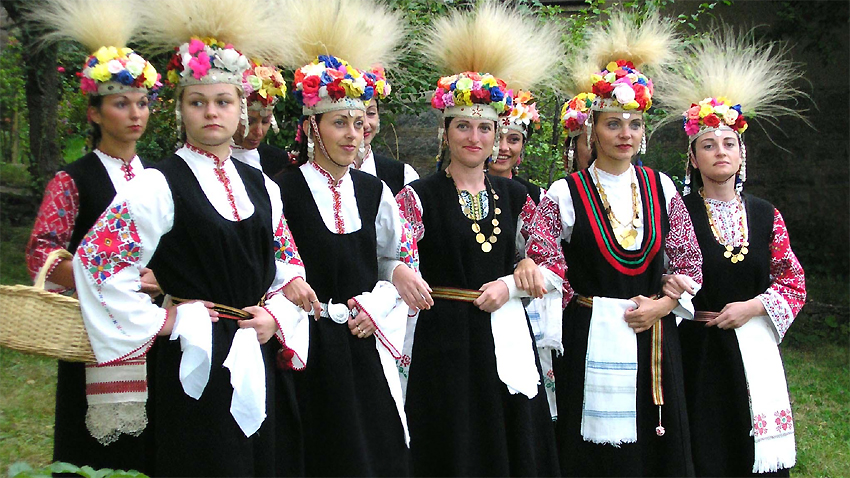 3
3
 “Lazarus, come out!” Christ spoke to his friend and the miraculous resurrection took place. A day before Palm Sunday the church marks Lazarus Saturday. In Bulgarian folklore this holiday is associated with spring as a symbol of revival and resurrection and focuses on youth, the awakening of nature and the new beginning.
“Lazarus, come out!” Christ spoke to his friend and the miraculous resurrection took place. A day before Palm Sunday the church marks Lazarus Saturday. In Bulgarian folklore this holiday is associated with spring as a symbol of revival and resurrection and focuses on youth, the awakening of nature and the new beginning.
“Lazarus, do you feel joy that spring has come?” the lyrics of a folk song go. Such folk songs also describe spring and the awakening of nature. Listen next to a song performed by Galina Durmushliiska that brings us the image of a young woman picking flowers in order to put them on her child’s hat.

The Bulgarian tradition of ‘lazaruvane’ is one of big importance for the social inclusion of young girls. It is believed that a girl who has not participated in the ritual would not get married. Moreover, such a girl could be kidnapped by a mythological zmey who could take her for a bride. On Lazarus Saturday groups of young girls go across villages, dancing and singing and people believe the ritual brings them health and prosperity. Girls start studying the songs in the middle of the Easter Lent. Some of the lyrics are actually well-wishings for the girls participating in the ritual. They promise Lazarus gifts if next year they give birth to a child.
There are Lazarus Saturday folklore songs dedicated to each family member, as well as to various occupations, to gardens and flowers. If in a visited house there was a woman who was not engaged yet, songs wishing her to find a husband soon are sung.
“Lazarus, they told me there was a beautiful lass in this home. Let us see her and let her get engaged by Easter and married by St. George’s Day”

Hosts give the Lazarus girls white eggs and money. The girls would later split the money, while the eggs will be coloured for Easter.
Making a full circle the girls always return to the place their tour started. They sing and dance during the whole time and separate in the evening to gather the next day for another premarital ritual called ‘kumichene.’

English: Alexander Markov
Moving to Bessarabia more than two centuries ago, some Bulgarians brought with them part of their rich rituals. In their new homeland, some customs became modified under the influence of local traditions, others disappeared, and still others have been..
The first day of January is a day filled with emotions and joyful anticipation of a prosperous year in which all family members will be healthy and will make all their dreams come true. In the traditional Bulgarian calendar, 1 January is known as..
On the first day of the incoming 2025, the small town of Razlog in the Pirin Mountain will wake up to the sound of bells, zurnas and drums . Traditionally, the colorful Kukeri festival "Starchevata" will begin at 11:00 a.m. on the central square..
At the end of the 19th century, the Czech artist and folklorist Ludvík Kuba travelled to Bulgaria with one goal in mind: to explore the country's rich..

+359 2 9336 661
